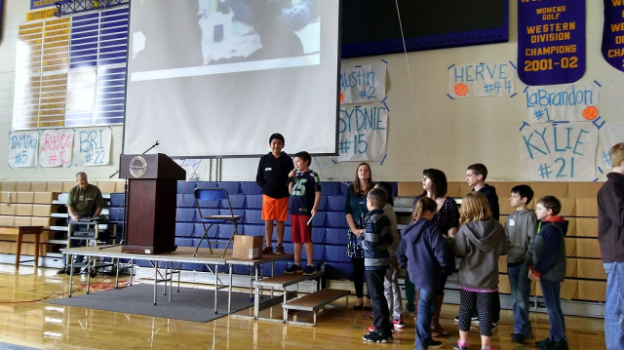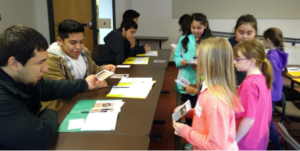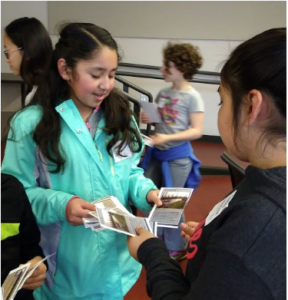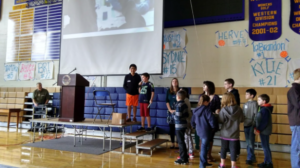The Climate Resiliency Fellows is a program of the Nisqually River Education Project, South Sound GREEN and Chehalis Basin Education Consortium. After the annual Summer Teacher Institute, the Fellows meet quarterly to talk climate science, explore new curriculum and support each other in bringing climate change education into the classroom. Melissa Miller is an Evergreen Elementary teacher and a Climate Resiliency Fellow this year; here, she blogs about her students’ experience at the 16th Annual Chehalis Basin Student Congress! Thanks, Melissa, for all that you do!
We recently had the opportunity to attend the 16th Annual Chehalis Basin Student Congress at Centralia Community College, and it was a great experience! A number of schools that lived within the same watershed area had been sampling local water sources throughout the school year, and this was their opportunity to get together and, as real scientists do, share their findings with each other. We were the odd ones out because we actually live in a different watershed, but everyone made us feel included. Students exchanged “trading cards” featuring their local water sampling sites, discussed their water quality testing data, and identified problematic “hot spots” within their observed data. They then discussed possible factors that negatively impacted the water quality. Students listed everything from pollution to garbage to dog waste, and then they considered possible solutions to the problems. As a group, they chose one recommendation to present later in the day.
The best part of the day was getting to watch students settle into the role of scientist. They each had their own schedule and were grouped with students from other schools, so as they nervously gripped their papers and found their way to their assigned rooms, I watched them transition from shy children to confident scientists. It was fun seeing them interact with students from other schools as they discussed ideas, and I loved watching individual students go in front of a room of strangers to present their water quality data to their breakout group! At the very end of the day, representatives from each breakout group stood in front of several hundred students to share their recommendations for improving local quality. Two of our students took the stage first and addressed the full gymnasium, sharing their ideas.
This opportunity provided a meaningful culmination for months’ work of water quality study and sampling. It allowed students to experience what scientists do as they come together and share their findings, and it allowed students to interact with other peers individually, in small groups, and in a presentation setting.
A bonus was having it at a college campus–since returning, several students have mentioned that they might want to attend college at Centralia Community College. Maybe they will go there. But wherever they go, this experience was one more drop in a bucket of meaningful, authentic science experiences that will prepare them for whatever future they choose.



